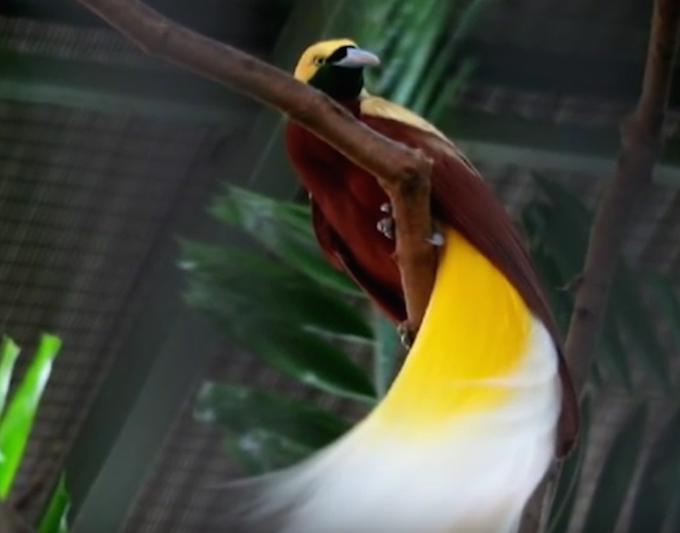By Asrida Elisabeth and adapted by Basten Gokkon
In an attempt to conserve the birds-of-paradise for which the region is famous, Papua Governor Lukas Enembe has banned the use of their body parts in anything other than traditional ceremonies.
Hunting has helped push some paradise birds — members of the family Paradisaeidae — to the brink of extinction.
Historically, indigenous groups on Indonesia’s half of New Guinea island — composed of the Papuan and West Papua provinces — have used the birds’ colourful feathers in their rituals and traditional dress.
Meanwhile, others turn their parts into souvenirs, sold to tourists or handed out by local officials at events.
Last November, a university student in Papua sparked an outcry after she posted pictures of herself holding a dead bird-of-paradise, known locally as cendrawasih, and a hunting rifle.
Governor Enembe enshrined the ban in a circular letter, a mechanism typically used to support existing laws.
The provincial administration plans to issue a regulation specifying the consequences for violating the ban, according to Papua Regional Secretary Hery Dosinaen.
Raids on stores
Until then, the government will use the circular to raid stores selling products made from real bird-of-paradise parts.
In addition to raising awareness about the animal’s protected status, the policy is expected to give Papua’s creative industries a nudge by turning craftspeople onto artificial bird parts.
Alex Waisimon, who runs birdwatching tours out of Jayapura, the provincial capital, welcomed the ban: “Cendrawasih is a bird from paradise that God created for us to protect together.”
But he recognised a greater threat than hunting — the destruction of the birds’ forest habitat.
Indonesia’s rapid deforestation has long been concentrated on Sumatra and Borneo islands in the archipelago country’s west. But forest loss in the Papua region is on the rise.
Korean-Indonesian conglomerate Korindo is one firm expanding there. The oil palm planter was recently the subject of a NGO report that said it was responsible for 30,000 hectares of deforestation and nearly 900 fire hotspots since 2013.
The Ministry of Environment and Forestry has said it is investigating the company.
Republished from Mongabay with permission under a Creative Commons BY-NC-ND licence.
- WWF calls for conservation








































